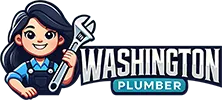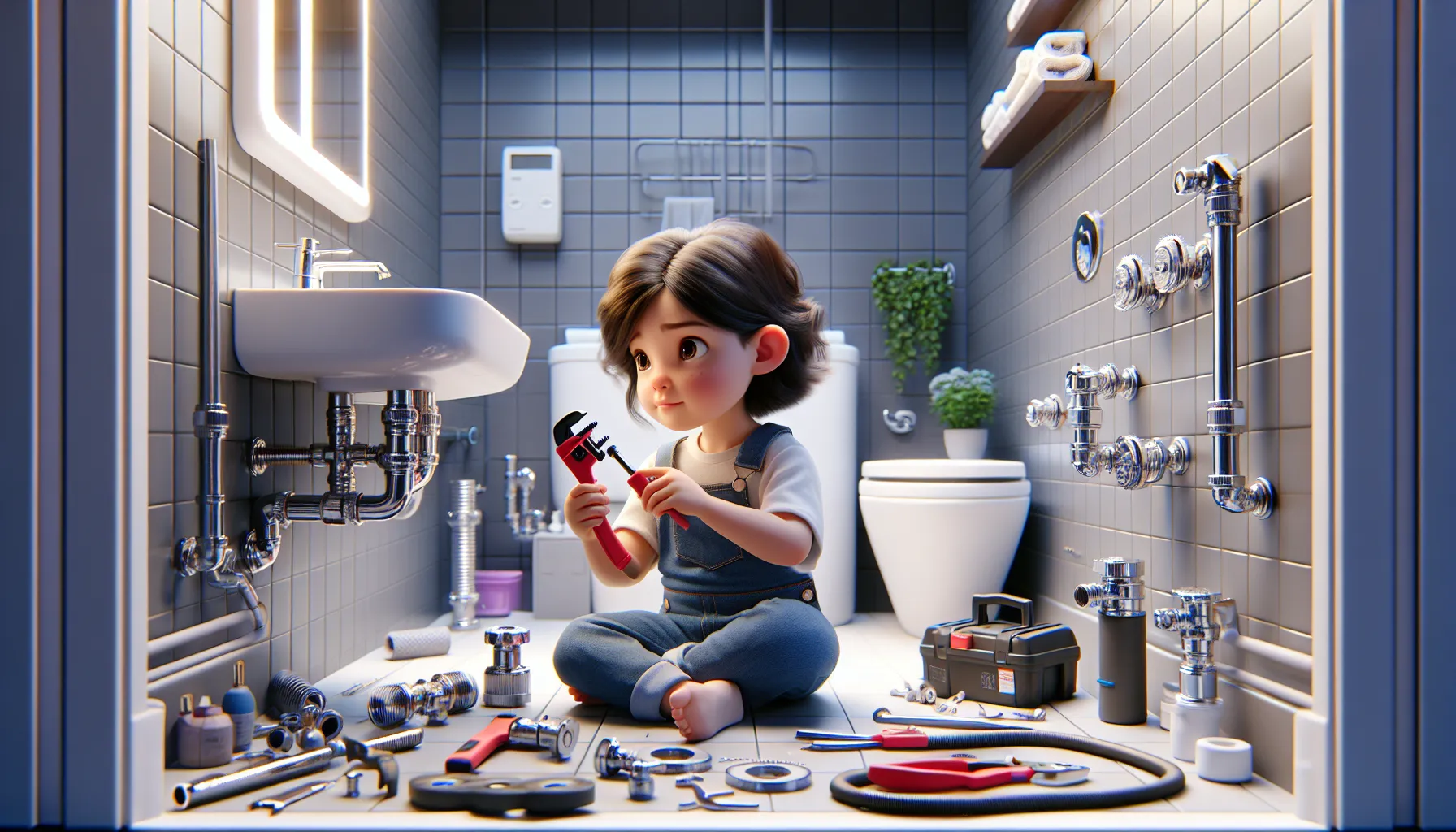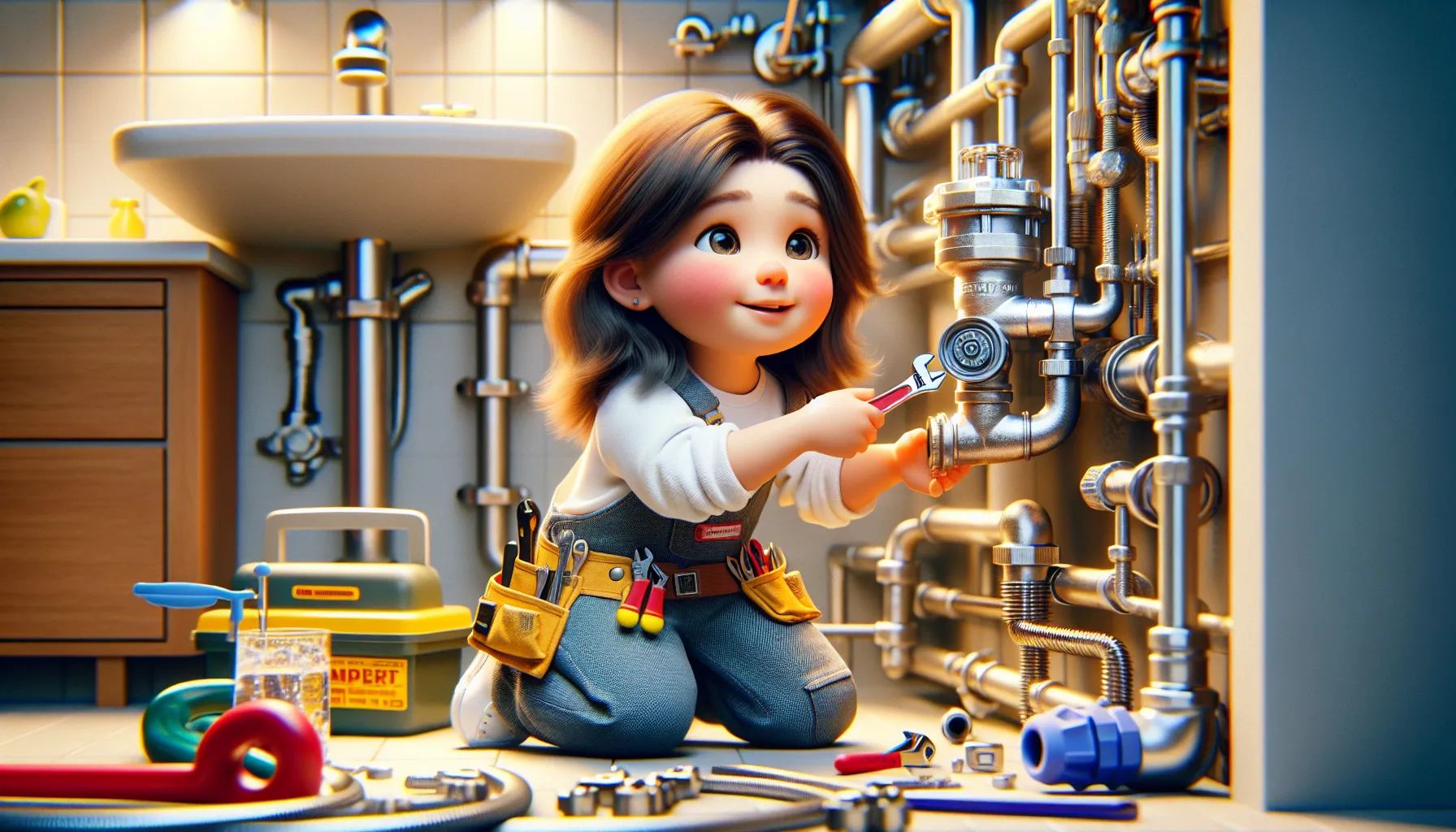The plumbing system in your home is crucial for daily activities, and neglecting it can lead to costly repairs and damage. Regular maintenance is key to keeping your plumbing in top shape. Here are 5 necessary tips to help you maintain your plumbing system and avoid potential issues.
1. Inspect for Leaks: Routinely check for leaks in faucets, pipes, and fixtures to catch them early and prevent water damage. 2. Keep Drains Clear: Avoid clogs by not flushing anything other than toilet paper, and use drain strainers in sinks to catch debris. 3. Monitor Water Pressure: High water pressure can stress pipes and lead to leaks, so install a pressure gauge to keep it at safe levels. 4. Maintain Water Heater: Flush your water heater annually to remove sediment buildup and increase its efficiency. 5. Schedule Regular Inspections: Hire a professional plumber to inspect your plumbing system annually to catch any potential issues before they become major problems.
Key Takeaways:
- Regular Inspections: Conduct routine checks on your plumbing system to catch potential issues early.
- Prevent Clogs: Avoid pouring grease, oil, and hair down drains to prevent blockages.
- Repair Leaks Promptly: Address any leaks immediately to prevent water damage and mold growth.
- Maintain Water Pressure: Monitor water pressure regularly to ensure proper functioning of your plumbing system.
- Professional Maintenance: Schedule regular maintenance with a professional plumber to keep your plumbing system in top condition.
Understand Your Plumbing System
Even if you’re not a plumber by trade, having a basic understanding of your home’s plumbing system can save you time, money, and headaches in the long run. By familiarizing yourself with the components, blueprints, and diagrams of your plumbing system, you’ll be better equipped to identify issues and communicate effectively with professional plumbers when needed.
Basic Plumbing System Components
With a simple understanding of the basic components of a plumbing system, you can grasp how water enters and exits your home. The main components include pipes, fixtures, valves, and fittings. Pipes carry water to and from your home, fixtures like sinks and toilets distribute the water, valves control the flow of water, and fittings connect the various parts of the system. Each component plays a critical role in ensuring your plumbing system runs smoothly.
Reading Plumbing Blueprints and Diagrams
For a more in-depth understanding of your plumbing system, it’s beneficial to learn how to read plumbing blueprints and diagrams. These visual representations outline the layout of your plumbing system, including the placement of pipes, fixtures, and other components. By familiarizing yourself with these blueprints, you can identify potential issues, understand the flow of water throughout your home, and even plan for future renovations or upgrades.
Plus, being able to read plumbing blueprints and diagrams can help you communicate effectively with plumbers and other professionals when discussing repairs or installations. This level of understanding can streamline the communication process, leading to more efficient and accurate work on your plumbing system.
Regular Inspection is Key
How to Conduct a Home Plumbing Inspection
Any homeowner must understand the importance of regular inspection when it comes to maintaining a healthy plumbing system. By conducting routine checks, you can identify potential issues early on and prevent costly repairs down the line.
Common Issues to Look Out for During Inspections
The most common issues to look out for during plumbing inspections include leaky faucets, slow drains, water stains on walls or ceilings, and low water pressure. These can indicate underlying problems that need to be addressed promptly to prevent further damage to your home. By paying attention to these warning signs during your inspections, you can catch issues early and avoid major plumbing emergencies.
Regular inspections are crucial for preventing small plumbing issues from turning into larger, more costly problems. By staying proactive and conducting routine checks, you can ensure that your plumbing system is functioning properly and catch any issues before they escalate. Make it a priority to schedule regular inspections to keep your plumbing in top condition and your home protected from potential water damage.
Preventing Clogs and Blockages
Many homeowners underestimate the importance of taking proactive measures to prevent clogs and blockages in their plumbing system. By practicing good habits and using natural remedies, you can help maintain the health of your drains and prevent costly repairs down the line.
Best Practices for Drain Usage
Practices such as avoiding pouring grease, oil, or coffee grounds down the drain can significantly reduce the risk of clogs. Additionally, using drain strainers to catch hair and debris before they enter your pipes can make a big difference in preventing blockages. It’s also important to run hot water down the drain after each use to help clear away any residue and keep the pipes flowing smoothly.
Natural Remedies for Keeping Drains Clear
Clearing your drains using natural remedies can be an effective and eco-friendly way to maintain your plumbing system. Baking soda and vinegar are a powerful combination that can help break down buildup in your pipes. Simply pour a mixture of baking soda and vinegar down the drain, let it sit for a few hours, then flush it out with hot water. This method can help dissolve grease, hair, and other debris that may be causing blockages.
Drains that are maintained regularly with natural remedies are less likely to develop stubborn clogs that require professional help. By incorporating these practices into your routine, you can help keep your plumbing system in top condition and avoid the headache of dealing with a major blockage.
Protecting Your Pipes
For an efficient plumbing system, it is crucial to protect your pipes from potential damage. By taking preventive measures, you can prolong the life of your plumbing and avoid costly repairs. Here are some imperative tips for safeguarding your pipes:
Insulating Pipes to Prevent Freezing
An effective way to prevent freezing pipes during the cold winter months is to insulate them. This simple and cost-effective solution can save you from the nightmare of dealing with burst pipes and water damage. Insulation sleeves or tapes can be easily wrapped around exposed pipes in unheated areas such as basements, attics, and crawl spaces. By adding this extra layer of protection, you can ensure that your pipes stay warm and water keeps flowing smoothly.
Managing Water Pressure for Pipe Longevity
Freezing can lead to serious consequences for your plumbing system. When water freezes, it expands and puts pressure on the pipes, leading to cracks or bursts. To avoid this potential disaster, it is imperative to manage your water pressure properly. High water pressure can strain your pipes and joints, increasing the risk of leaks and bursts. By installing a pressure regulator and monitoring your water pressure regularly, you can prevent excessive strain on your pipes and extend their lifespan.
Plus, regular maintenance such as checking for leaks and repairing them promptly can also help in preserving the integrity of your pipes and ensuring their longevity. By taking these simple yet effective steps, you can protect your plumbing system and enjoy a hassle-free experience for years to come.
Water Heater Maintenance
Routine Water Heater Inspection and Care
One of the key aspects of maintaining your water heater is to regularly inspect and care for it. This involves checking for any leaks, ensuring all connections are secure, and monitoring the temperature and pressure settings. Flushing the tank at least once a year to remove sediment buildup is also crucial for the efficient operation of your water heater. By performing these routine inspections and care, you can extend the lifespan of your water heater and prevent potential issues from arising.
Recognizing Water Heater Issues
With regular maintenance and inspection, you can also better recognize when your water heater may be experiencing issues. Signs to look out for include strange noises coming from the tank, discolored or rusty water, a lack of hot water, or leaks around the tank. If you notice any of these symptoms, it’s important to address them promptly to prevent further damage to your water heater and avoid potential safety hazards.
Heater issues such as leaks or overheating can lead to water damage, mold growth, and even the risk of fire hazards if left unresolved. By staying vigilant and addressing any problems as soon as they arise, you can ensure that your water heater continues to function properly and efficiently.
Dealing with Leaks and Drips
Early Detection of Leaks
To maintain a well-functioning plumbing system, it is crucial to address leaks and drips promptly. Allowing leaks to persist can lead to significant water wastage, structural damage, and mold growth. To detect leaks early, be vigilant for signs such as water stains, musty odors, or the sound of running water when no taps are open. Regularly inspect pipes under sinks, around appliances, and in basements to catch leaks in their early stages.
DIY Fixes vs. When to Call a Professional
Early intervention is key when it comes to plumbing leaks. Some minor leaks may be resolved with simple do-it-yourself fixes like tightening connections or replacing a washer. However, when dealing with major leaks, burst pipes, or extensive water damage, it is crucial to call a professional plumber immediately. Attempting to tackle complex plumbing issues without the necessary expertise can lead to further damage and costly repairs.
Seasonal Plumbing Considerations
Preparing Your Plumbing for Winter
Your plumbing system requires special attention as the colder months approach. Frozen pipes can be a costly and inconvenient issue to deal with, so it’s crucial to take preventative measures to protect your home. Insulating exposed pipes, sealing any cracks or gaps in your home’s foundation, and disconnecting outdoor hoses are important steps to safeguarding your plumbing system from the harsh winter weather.
As temperatures drop, it’s also wise to keep your home heated to a consistent temperature to prevent pipes from freezing. If you’re planning to leave your home for an extended period during the winter, consider shutting off the main water supply and draining the pipes to avoid any potential damage.
Summer Plumbing Tips
- Inspect your outdoor spigots for any leaks or damage.
- Clean out your gutters to prevent any water buildup.
- Check for any signs of leaks in your irrigation system.
Plumbing maintenance is just as crucial in the summer months as it is during the winter. The warmer weather can put added stress on your plumbing system, especially if you’re using more water for outdoor activities like gardening or filling up pools. Inspect your outdoor spigots for leaks, clean out your gutters to prevent any water damage, and check your irrigation system for any signs of leaks or malfunctions.
- Regular maintenance can help prevent costly repairs down the line.
- Be mindful of your water usage to avoid overworking your plumbing system.
- Consider installing a rain barrel to collect water for outdoor use.
Summer is a great time to catch up on plumbing maintenance and ensure your system is running smoothly. By following these tips, you can protect your home from potential water damage and extend the lifespan of your plumbing system. Thou should always be proactive in addressing any plumbing issues to avoid larger problems in the future.
Eco-friendly Plumbing Practices
Now, more than ever, it’s important to adopt eco-friendly plumbing practices to reduce our carbon footprint and conserve resources. By incorporating sustainable plumbing solutions, you can not only contribute to a healthier environment but also save money on your utility bills in the long run.
Energy-efficient Appliances and Fixtures
Practices that focus on energy-efficient appliances and fixtures can significantly impact your home’s overall environmental footprint. By upgrading to ENERGY STAR rated appliances and fixtures, you can lower your energy consumption and decrease greenhouse gas emissions. Look for high-efficiency toilets, faucets, and showerheads to reduce water waste and energy usage without compromising performance.
Conserving Water and Reducing Waste
Fixtures such as leaky faucets and running toilets can waste thousands of gallons of water each year, putting a strain on local water sources. Implementing water-saving practices like using aerators on faucets, installing low-flow showerheads, and fixing leaks promptly can save up to 50% of water usage in a typical household. Additionally, consider installing a smart irrigation system to ensure your outdoor water usage is optimized, preventing overwatering and water wastage.
Waste from our daily activities can harm the environment if not properly managed. Be mindful of what goes down your drains to prevent clogs and sewage backups. Avoid flushing non-biodegradable items such as wipes, paper towels, and hygiene products down the toilet. Implementing a proper waste disposal system and minimizing the use of harsh chemical cleaners can help protect your plumbing system and the environment.
Final Words
Taking this into account, following these 5 tips for maintaining your plumbing system can help prevent costly repairs and ensure the smooth functioning of your home’s plumbing. Regular inspections, fixing leaks promptly, being mindful of what goes down your drains, keeping an eye on your water pressure, and knowing the location of your main shut-off valve are all crucial steps to maintaining a healthy plumbing system. By incorporating these tips into your routine, you can save yourself time, money, and the inconvenience of unexpected plumbing issues.
Do not forget, a well-maintained plumbing system is imperative for the overall health and longevity of your home. By staying proactive and attentive to your plumbing needs, you can avoid major disasters and keep your plumbing running smoothly for years to come. Following these tips will not only benefit your plumbing system but also give you peace of mind knowing that you’re taking the necessary steps to care for one of the most important components of your home.
FAQ
Q: Why is it important to maintain your plumbing system?
A: Proper maintenance of your plumbing system helps prevent costly repairs, ensures water efficiency, and promotes a healthy living environment.
Q: How often should I check my plumbing system?
A: It is recommended to inspect your plumbing system at least once a year to catch any potential issues early on.
Q: What are some tips for maintaining my plumbing system?
A: Five vital tips for maintaining your plumbing system include checking for leaks, clearing drains regularly, insulating exposed pipes, monitoring water pressure, and scheduling professional inspections.
Q: How can I prevent clogs in my drains?
A: To prevent clogs, avoid pouring grease or oil down the drain, use drain strainers to catch hair and debris, and refrain from flushing non-flushable items down the toilet.
Q: When should I hire a professional plumber for maintenance?
A: It is advisable to hire a professional plumber for maintenance tasks that require specialized knowledge or equipment, such as sewer line inspections, water heater maintenance, or major plumbing repairs.


